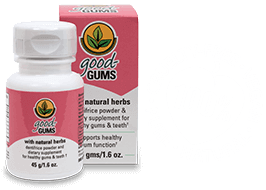Information On How Saliva Affects Gums and Teeth
Four different types of salivary glands typically secrete between a half and one-and-a-half liters of saliva per day, the equivalent of having between two and six 8-ounce glasses of water. Healthy teeth and gums are regularly washed by beneficial saliva.
While most people think of tooth health in terms of cavities (or caries), they’re unaware that the volume and composition of saliva protects against caries. It’s a beautifully balanced system. Bacteria in the mouth are necessarily part of the digestion process, and some of the bacteria respond by producing acid byproducts. Sugary foods fuel this process the most. The acid given off by the sugar-eating bacteria breaks down the microscopic crystalline mineral structure of tooth enamel in a process called demineralization. Saliva protects the teeth from demineralization three ways. If enough saliva is produced, then the flow flushes some of acid and excess sugars from the surface of the teeth. Saliva also buffers the pH, lowering some of the spike in acidity. And thirdly, saliva incorporates ions of the very minerals needed to restore the structure of tooth enamel (especially calcium and phosphorous) and can deposit them into the microscopic gaps in a process called remineralization.
There’s a virtually imperceptible back and forth dynamic of molecular enamel breakdown and renewal every time we eat, as food becomes acidic in the mouth and saliva flows onto the gums and teeth in response to eating. If demineralization happens at a greater rate than remineralization, enough enamel will be dissolved to allow bacteria to invade the tooth structure underneath the enamel, sometimes spreading underneath the enamel. The normal treatment then is for a dentist to grind out the affected section and put in a filling.
The health benefits of saliva extend also to the teeth-supporting structures, especially to the gums, which encapsulate and protect the teeth’s roots, periodontal ligaments and alveolar bone. Saliva is mildly antiseptic. The acid-buffering action described above not only serves the teeth enamel, but it also serves the gums by reducing the acidity favored by the acid-loving bacteria that form plaque.
With the industrialized diet of refined foods that we eat, saliva isn’t enough to safeguard our teeth and gums. The other practices (brushing, flossing, etc) are also necessary. But the importance of saliva in maintaining oral health is demonstrated by people whose production of saliva is dysfunctional due to disease, radiation, surgery or drug interference. They tend to get more caries (cavities) and to have more gum disease.
Good-Gums natural gum support that includes high-mineral sea salt can help stimulate the flow of saliva. A healthy volume of saliva requires good hydration. When the water content of the body is reduced by 8%, saliva flow virtually stops. A healthy composition of saliva also requires good nutrition, addressed in another section.


